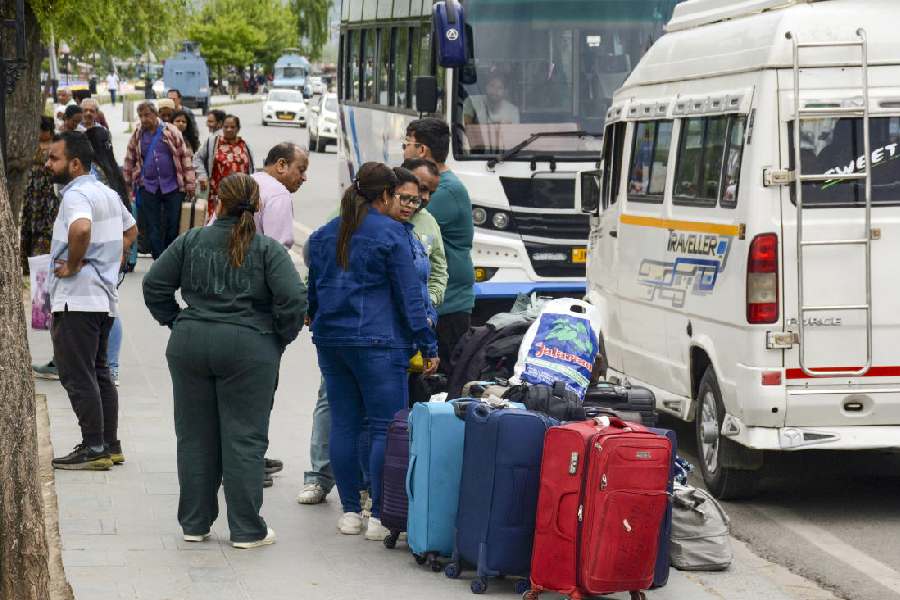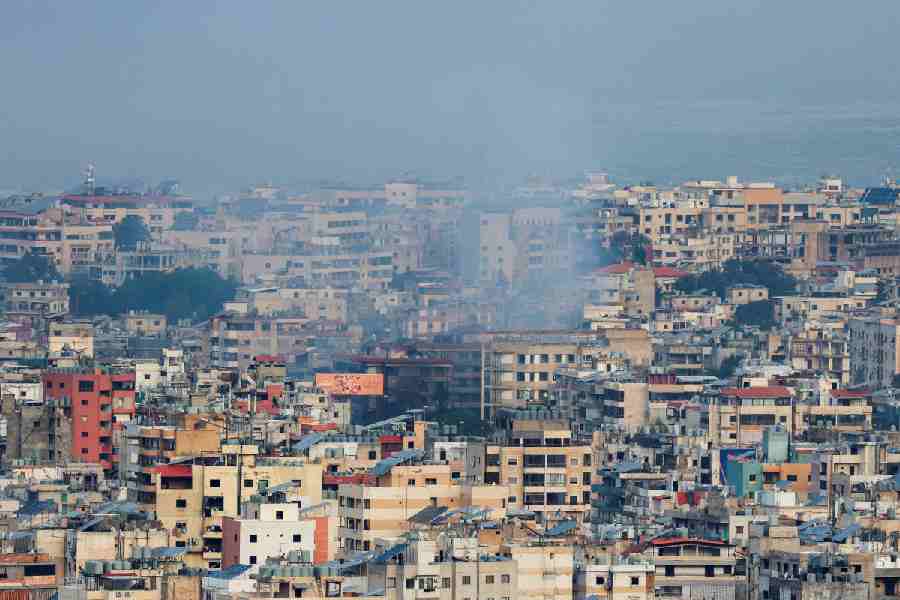Indian airlines are staring at higher operational costs and longer travel times, which may lead to financial losses and rising airfares, as they reroute international flights after Pakistan shut its airspace in the aftermath of the Pahalgam terror attack, aviation experts have said.
Temporary suspension of flights on Central Asian routes can also be expected, they added.
Indian airlines had suffered losses of around ₹548 crore due to airspace closure by Pakistan in 2019, according to data provided by then minister of state for civil aviation to Parliament.
Air India and IndiGo — the two major Indian airlines that offer international services — announced on Thursday evening that they would take alternative extended routes for flights to and from North America, the UK, Europe and West Asia.
“Air India and IndiGo will be most affected by the closure of Pakistan airspace,” said Mark D. Martin, CEO of Martin Consulting and an aviation expert, noting that the development comes at the peak of the summer holiday season.
IndiGo, in a statement, said the airspace closure by Pakistan had impacted a few of its international flights.
“Our teams are working diligently to assess the situation and assist impacted customers with the best possible alternatives. This sudden announcement is beyond our control and we sincerely regret the disruption it may have caused to your travel plans.
"If your flight is impacted, we encourage you to visit our website to explore flexible rebooking options or claim a refund as per your preference,” it said.
The airline said it had cancelled its flights to Almaty from April 27 to May 7 and
to Tashkent from April 28 to May 7.
“Due to the closure of Pakistan’s airspace, 50 international routes operated by IndiGo will require longer sectors and hence may be subject to some slight schedule adjustments. With the same restrictions and limited rerouting options, unfortunately Almaty and Tashkent are outside the operational range of IndiGo’s current fleet,” Indigo said in a statement.
Sanjay Lazar, an aviation expert and CEO of Avialaz consultants, told this newspaper that Indian airlines would have to face longer flight times, circuitous routes and technical halts on ultra-long-haul flights to and from the US and Canada.
“This could range from an hour to 90 minutes extra on ultra-long-haul flights (excluding the additional time a technical halt entails),” he said.
“We should be seeing additional flight time for journeys to Central Asia, London and other parts of Europe. Additional flying time can even go up to one and a half hours for some ultra-long-haul flights to North America,” Lazar said.
He expects the airlines to announce modified schedules by factoring in the extra flight time and the possible technical halts.
However, Lazar hoped that airlines would be able to manage the crisis efficiently as they had coped well when Pakistan had shut its airspace after the Kargil War and Balakot strikes.
According to Martin, ticket prices may see a 35-45 per cent rise for flights to West Asia and Europe.
“By conservative estimates, we expect ticket prices to rise by a minimum of 35 per cent to destinations in West Asia and by over 45 per cent to destinations to Europe in addition to higher carbon emissions and fuel burn," Martin said.
He hoped for a quick de-escalation in the situation, which threatened to take a toll on the airlines’ earnings.
Lazar said long detours and technical halts would lead to additional fuel, crew and landing costs.
“For narrow body operations to Central Asia, there may be a greater cost impact since a technical halt in West Asia may be essential. There could be some temporary suspension of routes to Central Asia,” Lazar said.
However, he said he didn’t expect an immediate hike in airfares.
“Though costs will go up, I don’t see price tickets going up right away. After three to six months, we could see some hardening of rates as airlines tweak fares and pass on costs to consumers,” he said.
“Additional flying time may eventually make flights more expensive as well. There are extra costs involved. There is extra fuel burn because of a more circuitous route, plus an extra stop on ultra-long-haul routes, which incur additional crew and landing costs too,” he said.
The experts said Delhi and Mumbai airports might experience disruption and
increased load as the maximum long-haul and ultra-long-haul flights to North America, Europe and the UK depart from there.
Tickets for flights to Srinagar from Delhi, Mumbai and Calcutta for the next three months cost between ₹4,700 and ₹12,000. If someone plans to travel to Srinagar in the next two weeks, tickets are available for ₹4,470.
Airlines and ticket booking platforms have expressed an inability to share cancellation and rescheduling figures.
The Directorate General of Civil Aviation on Saturday issued an advisory to airlines on providing proper communication and in-flight catering services to passengers because of extended flight durations and technical stops caused by Pakistan’s airspace closure.
The advisory also focuses on medical preparedness and alternate aerodromes, customer service and support readiness and intra-departmental coordination.










